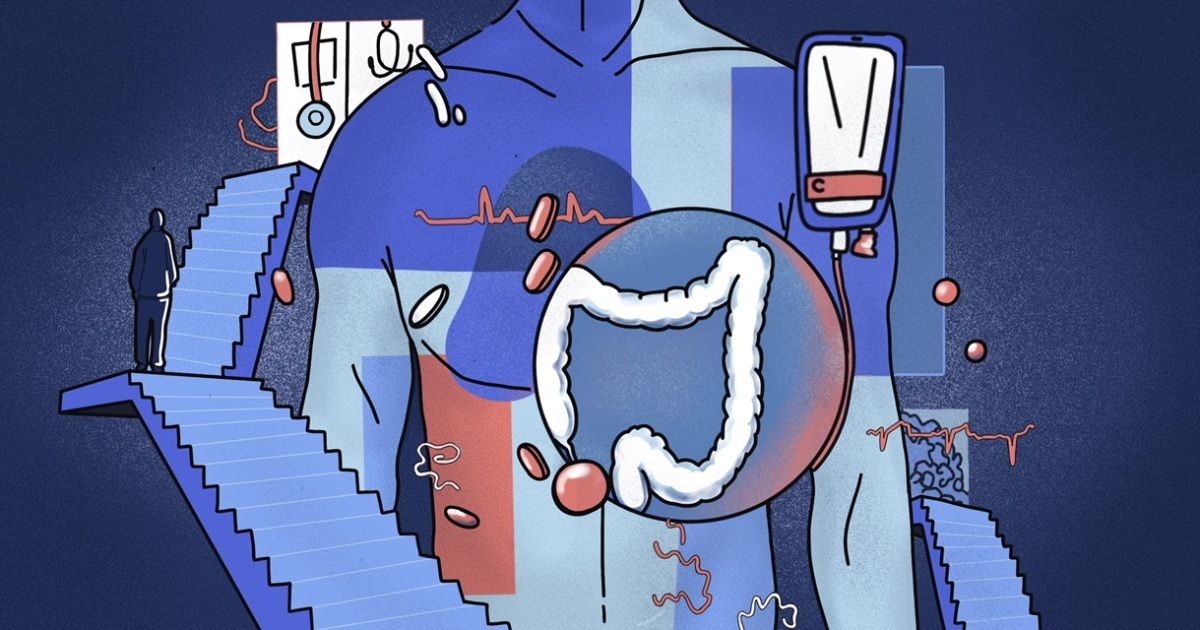Colorectal cancer rates have risen dramatically among young adults, but diagnosing patients in this group has proven difficult.
…
Dr. John Marshall, chief of hematology and oncology at MedStar Georgetown University Hospital, said that 30 years ago, he didn’t see any colorectal cancer patients under 50 at his clinic. Today, the group makes up more than half of the patients, he said. Many were healthy and active before their diagnosis, Marshall added, with no family history of the disease.
“It’s the same kind of cancer but shifted earlier in age,” he said.
Doctors and researchers can’t fully explain the trend. And a combination of factors — including that young people don’t get regular screenings, are more likely to ignore symptoms and may not see a doctor regularly — can make diagnoses challenging.
A survey from the Colorectal Cancer Alliance showed that 75% of young colorectal cancer patients and survivors visited at least two physicians before getting diagnosed, and 40% said their providers dismissed their symptoms and concerns.



An example of symptoms and concerned dismissed:
Ive read ao many of this type of story, with people, students and sometimes laymen, suspecting they had a disease only for doctors to dismiss them and then they have to deal with a much later than necessary diagnosis.
There’s inherent reporting bias here though. The rate of “webmd says it might be cancer” where it winds up being indigestion is also going to be very high, but those are never going to be newsworthy so you’ll never read about them.
Of course, but I’m not gonna be the guy who lets actual cancer be written off so easily.
Instead you’ll be the guy who ordered $100k worth of testing for lupus when the symptoms say male pattern balding?
Lmao, obviously that is part of the spectrum of situations, but I don’t think I’ll go that far. You have to look at the symptoms, look for high overlap, and consider the prevalence of diseases so you’re not chasing a solution for alien anal probe complications when you just have plain old hemorrhoids.